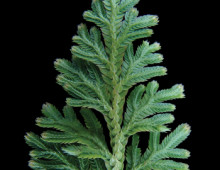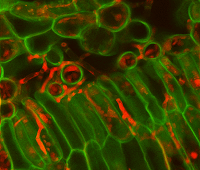Spikemoss genome aids biofuels researchers and botanists
The genome of a small plant is providing biofuels researchers with information that could influence the development of candidate biofuel feedstock plants and offering botanists long-awaited insights into plant evolution. Published online May 5, 2011 in Science Express, a team of researchers including DOE JGI’s Dan Rokhsar and Igor Grigoriev used a comparative genomics approach on… [Read More]

